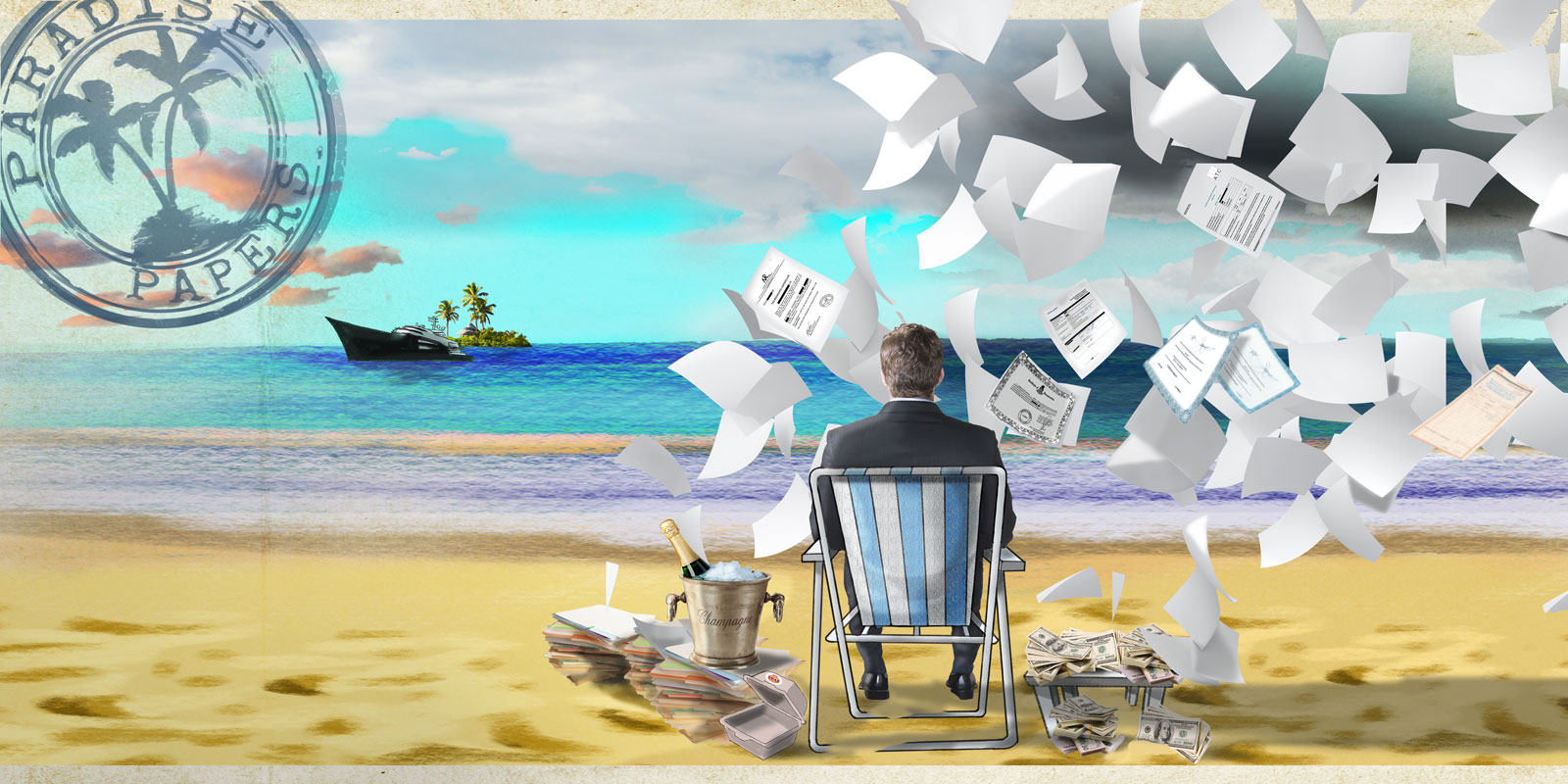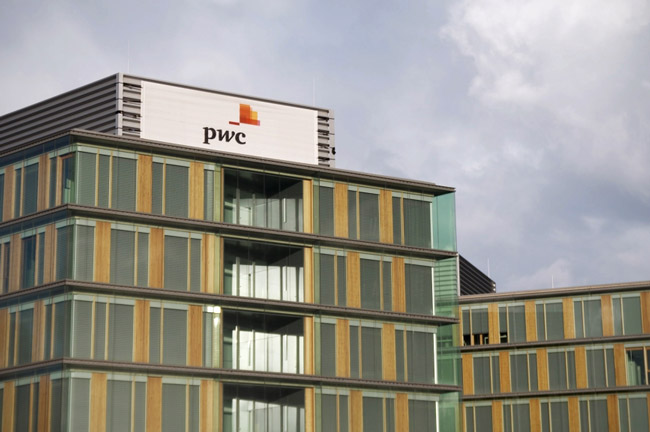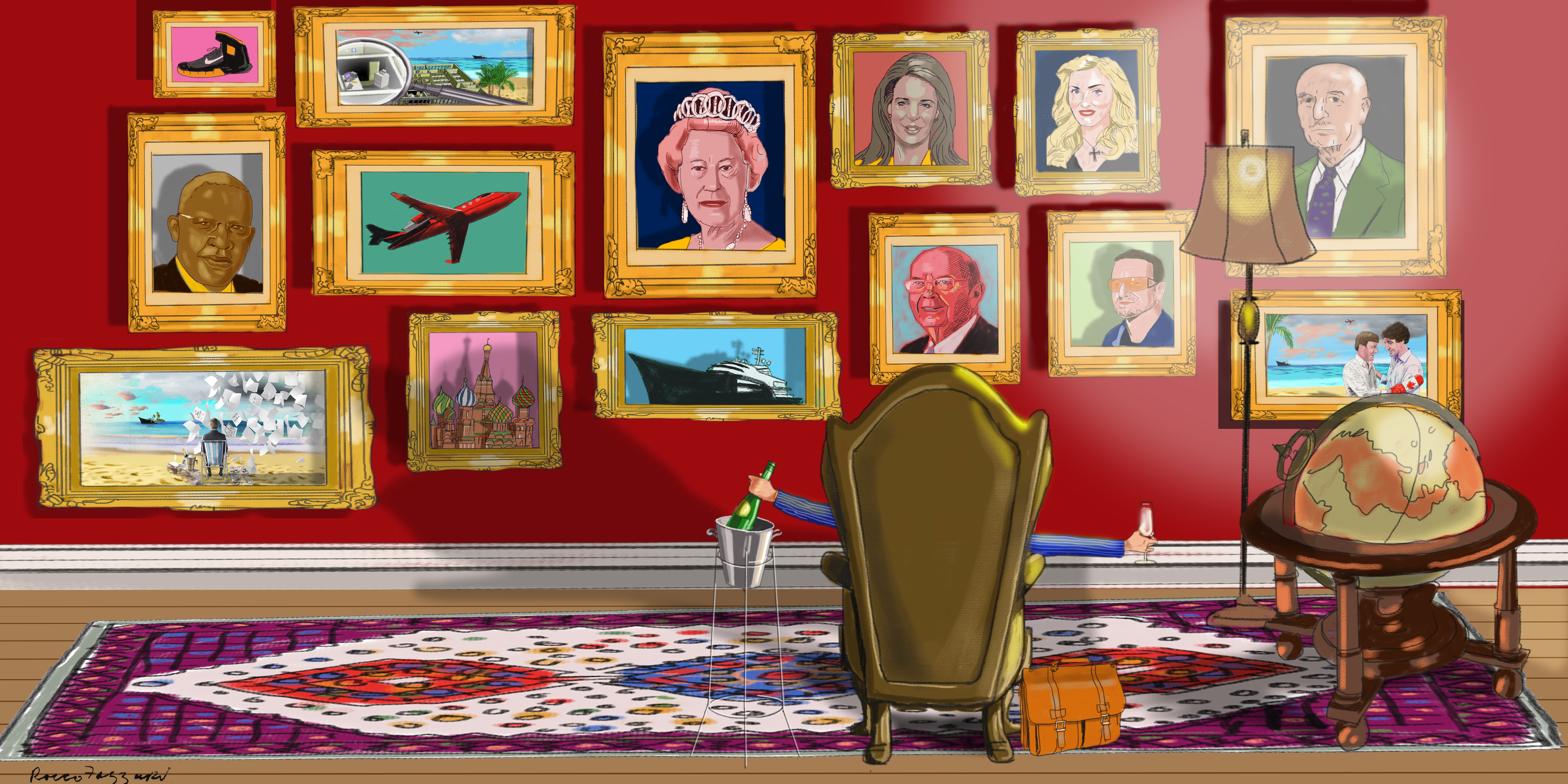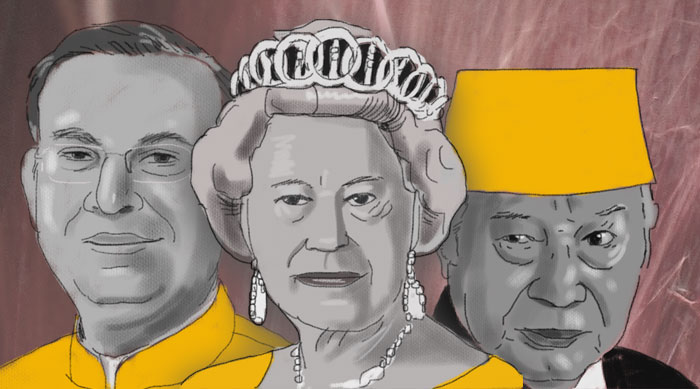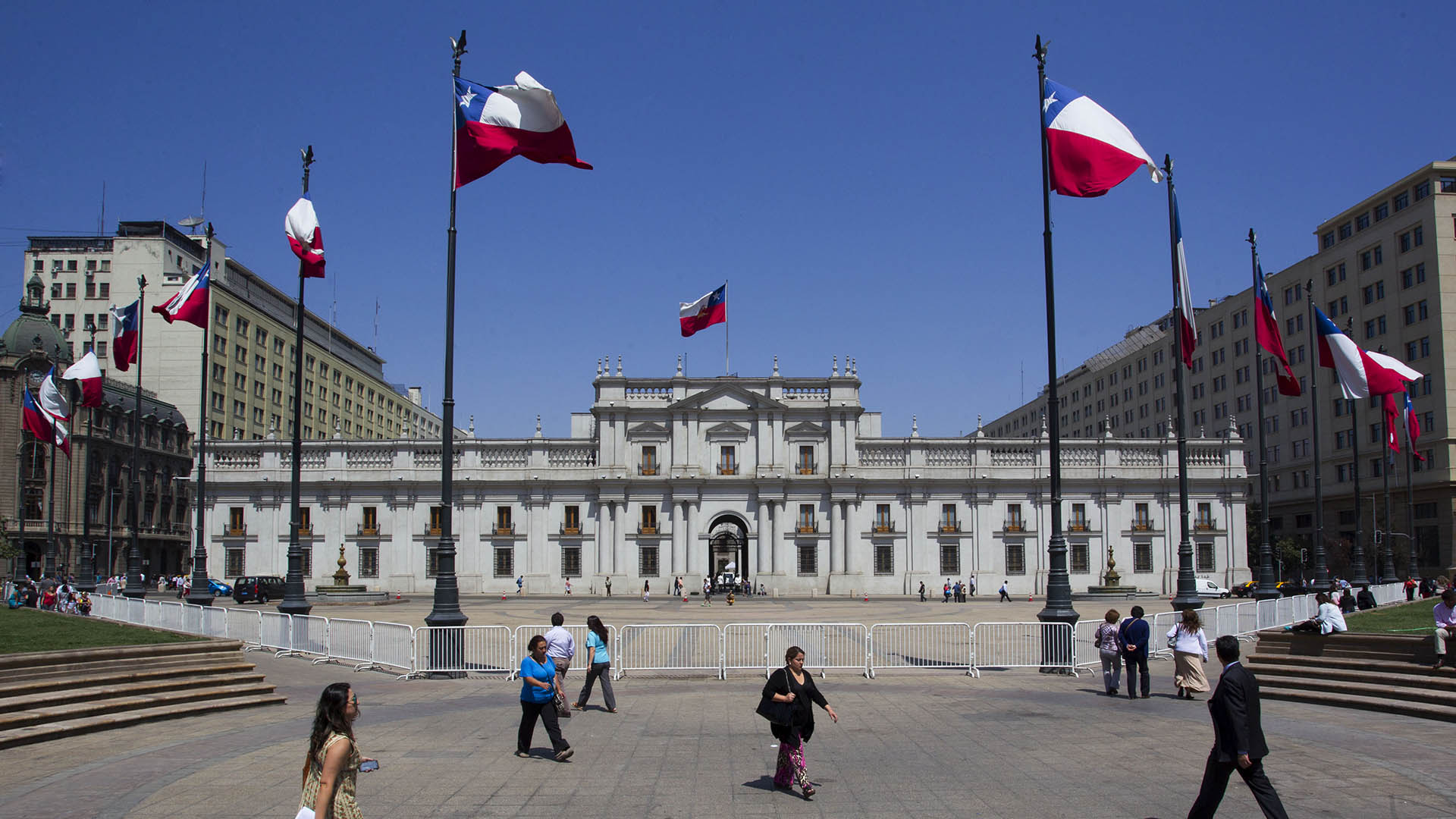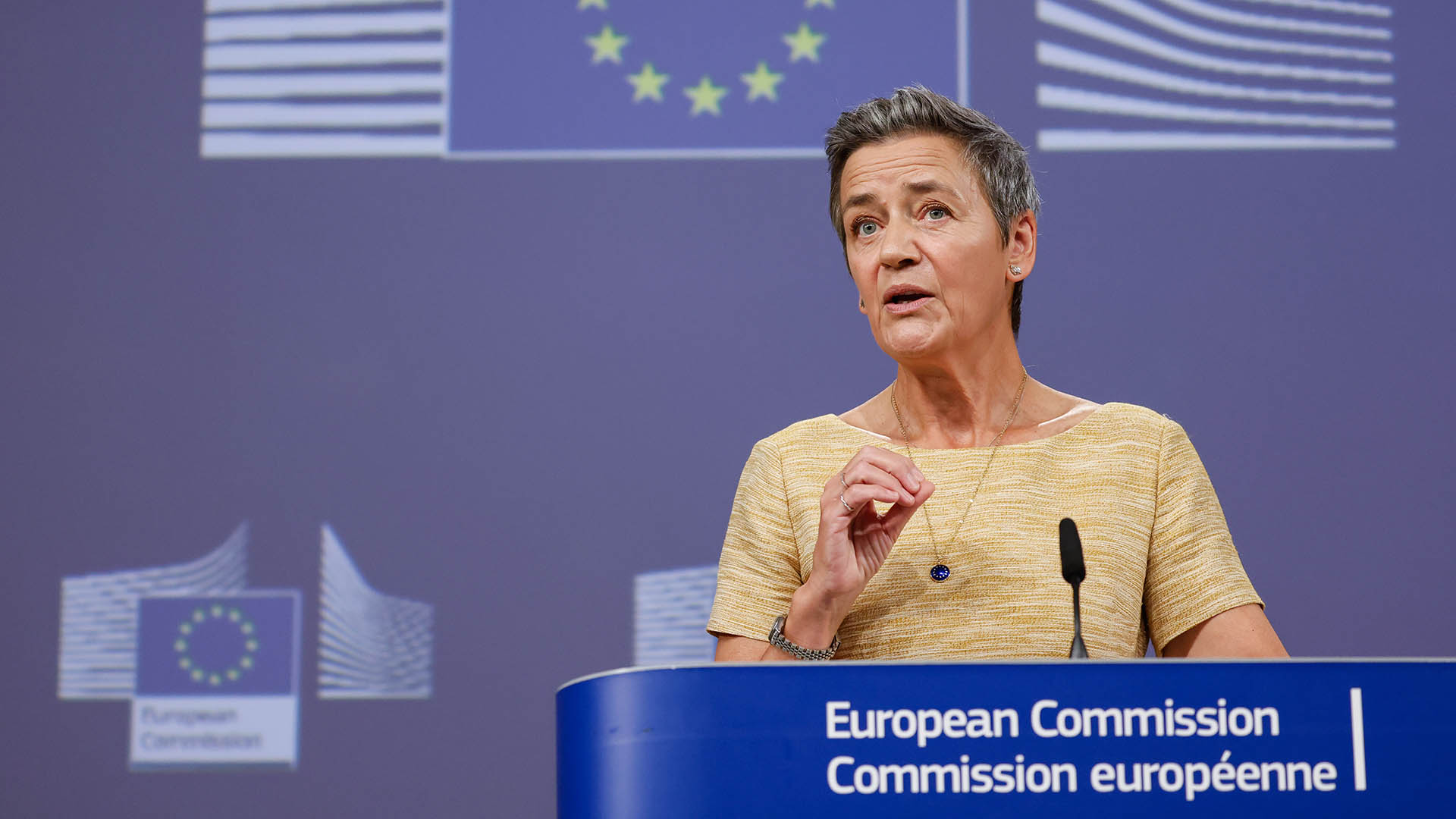What happened after the Paradise Papers were released? What is happening in my country? How can I get more information about the Paradise Papers?
Everyday, people are questioning, reading and — sometimes — discovering our investigations for the first time.
So, to mark the anniversary of ICIJ’s 2017 Paradise Papers investigation, we decided to answer some of your burning questions.
We’re a small team and always busy moving forward on other investigations, so we couldn’t answer them all. Sorry! But what follows are answers to some of the most frequent questions we received.
Got feedback on how we did? Let us know!
What has been the real impact of the Paradise Papers on the economy? Have the findings brought new ways of doing business? How is the financial industry adapting to the work of whistleblowers?
Well, that depends on which economy you’re talking about.
In some cases, like Lithuania, the Paradise Papers led to the recovery of unpaid taxes and penalties, increasing government revenue. And, if the Panama Papers are any guide (more than $700 million recouped globally, a figure that continues to grow), it’s probably safe to expect more reports of countries recovering lost revenue.
But the broader impact has not been so immediate or straightforward (and is extremely hard to measure). If reading millions of emails by the world’s richest 1 percent, their lawyers, accountants and wealth managers has taught us anything, there are always new ways to skirt tax laws and new “hot” tax havens ready to step up and fill the void when others are taken down. We’re always open to getting more leaks about that… Delaware or Dubai Papers, anyone?
We’ve had some anecdotal reports after the Paradise Papers that offshore industry professionals are re-thinking how to avoid a major leak. Sometimes that vigilance is in the form of more IT security. We’re still seeing chatter from cybersecurity firms in the wake of the Paradise Papers (and other leaks), about new protections such as Meritas’ new security measures for lawyers.
Being a whistleblower is still a dangerous and often lonely calling. But, based on what we’ve seen, there are motivated citizens who will continue to find ways to share information about illegality, immorality and harmful activities with journalists like ICIJ’s.
What’s happened in America? Is it true that this is the best time to cheat on your taxes?
We decided to consult economics professor, Gabriel Zucman, who (alongside his colleagues) has done mountains of research on the impact of tax havens on nations, including the United States, for the second part of this question.
There have been “two opposite trends” in the U.S., he told us.
First, the Internal Revenue Service has suffered “large” budget cuts that “reduces its enforcement capacities, facilitating tax evasion for some people.”
On the flipside, offshore tax evasion has become harder, because of some “improvements in information collection,” he said. One example is the Foreign Account Tax Compliance Act, which requires foreign financial institutions to share information about foreign bank accounts of Americans, which makes offshore tax evasion harder.
All I remember hearing about in the Paradise Papers was Lewis Hamilton, Madonna and Queen Elizabeth II. Was it really just a bunch of celebrities?
Nope.

It’s true that some of the most popular and widely-read stories from the Paradise Papers’ investigation were about how the world’s rich and famous used offshore tax havens to conceal assets and investments or benefited from huge tax breaks of the kind average citizens never see.
But Paradise Papers can’t be boiled down to Lewis Hamilton’s cherry-red private jet.
In Latin America, reporters’ exposés led an Argentine prosecutor to issue an arrest warrant. Colombia’s president, Juan Manuel Santos, who was named as a director of offshore companies, released his personal income statements to demonstrate his commitment to transparency.
In Africa, reporters with The Namibian and The Premium Times in Nigeria revealed how senior politicians were connected to offshore companies and how widely-criticized treaties with the tax haven Mauritius may have cost some of the world’s poorest countries millions of dollars in lost taxes.
A recent report by the International Monetary Fund cited the Paradise Papers in a study that found even more evidence that such treaties strip tax revenue from some of the world’s poorest countries.
In Switzerland, the federal tax authority used the Paradise Papers to open a criminal case against KPMG and the former manager of Angola’s sovereign wealth fund.
Indonesians in the documents included the son and daughter of former president Suharto, who has been described by Transparency International as one of the most corrupt leaders of the past century. Malaysian billionaire Taek Jho Low, who remains a fugitive after allegedly embezzling billions of dollars from the country’s sovereign fund, cropped up in leaked emails inquiring about extradition issues.
Why isn’t Canada’s prime minister, Justin Trudeau, being investigated? (This was one of a number of questions on Canada – thank you Canadians!)
Trudeau found himself in hot water when we broke the Paradise Papers. A close family friend and fundraiser for Trudeau’s Liberal Party, Stephen Bronfman, was tied to an offshore trust that our reporting showed may have broken tax rules and avoided taxes in the U.S., Canada and Israel. Bronfman denied wrongdoing. Trudeau raised eyebrows when he said he was “satisfied” with Bronfman’s explanation – before Canada’s Revenue Authority had investigated the revelations.
While Trudeau gave Bronfman a pass, five months later his government introduced new rules to penalize lawyers, accountants and users of offshore trust funds who do not reveal their identities.
The CRA says that it is still probing more than 3,000 Canadians whose names emerged from the Paradise Papers.
“Building on the foundation established in addressing the Panama Papers [an earlier ICIJ investigation], the Agency continues to review the more recent Paradise Papers,” a spokesman for CRA told ICIJ media partner The Toronto Star. “For both sets of data leaks, the CRA will share information with treaty partners and take appropriate actions to ensure compliance with tax laws.”

What would happen if Canada declared war on tax havens?
We’ve seen many countries declare “war” on tax havens after the Paradise Papers.
A few days after the Paradise Papers, European finance ministers met to discuss a Europe-wide blacklist of tax havens. Blacklisting has been used in the past to discourage people and corporations from using banks in Switzerland or companies in Panama.
But when the list was adopted a few weeks later, many people criticized Europe for ignoring infamous tax havens like Bermuda and instead focusing on head-scratching cases like Namibia and South Korea.
Politics, many believe, won the day.
“The result of the flawed blacklisting process is a politically led list, that includes only the economically weak and politically unconnected,” said Tax Justice Network chief executive, Alex Cobham.
I would like to know if there is a way to verify that tax departments have used the information to prosecute tax evaders? I suggest the next fight is to expose that tax departments are not using this information and consider how to force them to do it.
We, and our partners, are constantly asking tax authorities around the world how they are using information from the Panama and Paradise Papers. Sometimes, we are told that probes are open. In other cases, we don’t receive any official answer. Of course, opening an investigation is different from successfully prosecuting one. That is much harder, it seems, and much rarer.
It’s a mistake to write things off before investigations have been allowed to run their course.
But as Australia’s tax commissioner, Chris Jordan, told us after the Paradise Papers: “It’s a mistake to write things off before investigations have been allowed to run their course.”
Also, we like to live in hope that these investigations are also happening in the background. Call us optimists!
Ross Delston, a Washington D.C. attorney and anti-money laundering specialist, recently told us government investigators may choose not to release information about ongoing probes out of “fear the individuals will take flight and that the money could disappear in nanoseconds.”
“All of that results in a perception that nothing is going on when, in fact, there could be quite a bit going on that is unseen by the public,” Delston said.
I would like to know how in depth you have gone into the papers. The info regarding directors and recorded owners is public information. There is no access to the actual documents. Have you shared the files with people outside your organization? Governments at a minimum would obviously like to see the documentation.
Our collaboration (which now numbers more than 400 journalists in 90 countries on the Paradise Papers) has gone into great depth to search for stories in the public interest, and have worked with hundreds of experts and industry insiders to help us understand these files and follow leads.
We won’t arrogantly assume we’ve found everything. But our method of working collaboratively across borders has been embraced by tax authorities as a model for more efficient investigations (for example, the Organization on Economic Cooperation and Development’s Joint International Taskforce on Shared Intelligence and Collaboration group has responded to many of our investigations).
For many of the jurisdictions covered by the Paradise Papers, the only way the information regarding directors and owners is freely available to the public is through our Offshore Leaks database. We’re making as much information publicly available as is responsibly possible. This includes also publishing documents from the leaked files alongside our stories.
Governments are openly (and not-so-openly) using this information in their own investigations, and have taken action against tax evaders and wrongdoers around the world.
Why don’t we share the data with governments? Because ICIJ is not an arm of law enforcement and is not a government agent. We are an independent news organization, served by and serving our members, the global investigative journalism community and the public.
Is the widespread use of flag of convenience shipping emboldened by offshore account ownership?
“Flags of convenience” refers to the practice whereby the owners of ships – fishing boats, oil tankers, private yachts – register vessels in a tax haven with no real connection to the boat. This can make it easier to evade taxes or skirt stringent environmental or labor laws. Panama is a famed flag of convenience.

So is Liberia, which an ICIJ reporter visited a month or so ago. Liberia’s Revenue Authority told Will Fitzgibbon that it was aware of the reputational damage that its flag of convenience sector was causing the country and that changes were afoot. Others doubt the country will do anything to reduce the millions of dollars that Liberia receives every year in fees simply for offering its flag for sale. Watch this space.
A similar thing happens with planes. The Paradise Papers revealed how some of the world’s wealthiest celebrities and politicians registered private jets in the Isle of Man — and it certainly didn’t appear to be for their love of the local cuisine or the beaches. It often seemed often to be more a mechanism for reducing or evading taxes. Lewis Hamilton’s jet, for example, spent just one hour on the Isle of Man before receiving a government exemption that allowed him to avoid tax.
Why so little follow up on U.S. shell company racketeering?
We saw fewer shell companies set up in U.S. tax havens (think Delaware, Wyoming, Nevada) in the Paradise Papers than we did in the Panama Papers. But we saw a lot more Americans using and benefiting from offshore companies.
Experts and commentators usually suggest two reasons why U.S. investigators haven’t yet made as much fuss about the Paradise Papers as investigators in Europe, Australia and Asia. First, U.S. authorities must overcome legal barriers such as attorney-client privilege to be able to use the information in their investigations. Second, the Paradise Papers revealed the financial affairs of some very powerful U.S. business executives and political figures, including President Donald Trump’s Commerce Secretary Wilbur Ross…
It was promising to see a document, received through a Freedom Of Information request, that showed that the Department of Justice was using our Offshore Leaks database. Given that they used it after the Panama Papers, they are likely now using it after the Paradise Papers too. But that’s pure speculation.
We also find it’s helpful not to be distracted by front pages only. We regularly hear from U.S. enforcement agencies (FBI agents, Department of Justice officials and others) who say they frequently consult the Paradise Papers data and stories for insights into active cases they are working on.
South Africa is reeling under corruption and mismanagement. I am sure these leaks can tell us where and how the politicians moved their stolen billions around the world.
We haven’t seen any obviously stolen billions from South Africa in any of the offshore projects so far. But the Paradise Papers did reveal some important information about South Africa’s most powerful and revered political figures. We learned more about an offshore trust of Nelson Mandela and the collapse of a deal involving current president Cyril Ramaphosa.
“There is a tendency to focus narrowly on government/ANC corruption while downplaying corruption in the private sector,” Micah Reddy, a reporter with ICIJ’s South African partner AmaBunghane told us.
“What leaks like the Paradise Papers show, however, is a common modus operandi among South African business elites, who exploit secrecy jurisdictions and tax loopholes to hide dirty money and dodge their tax obligations.”
Do you have any more about British individuals and companies using offshore to hide wealth and avoid taxes (not just evade tax)? Some of the examples so far are good, but are there more?
You’re no doubt referring to the excellent coverage by ICIJ’s U.K. partners — both the BBC and the Guardian have stories on Queen Elizabeth, politicians, sports stars, private jets and yachts and so much more.
Is there more to come? We hope so! Our partners continue to dig through the data, but we’re also asking citizens, experts and industry insiders to explore our database and send us tips and/or share information with us. Whistleblowers have helped bring more transparency to the secretive offshore financial world than any amount of government regulation. If you have access to information that you think the world needs to know, get in touch.
Are there any East Timor high ranking government officials discovered in the Paradise Papers? What about Cambodia’s ruling family?
In Cambodia our partners have found and reported on the army chief’s wife and her ties to a mining company registered in the Cayman Islands.
So far, we haven’t found connections to East Timor officials or the Cambodian ruling family but, as you may know, company owners often use representatives or nominee directors to hold shares in companies offshore. Prominent political or business figures may be partnering with lower-profile people to conduct business on their behalf. This is why we encourage you to contact us if you have knowledge of any public figure still hiding in the data.
East Timor is also one country where we don’t currently have a member. Maybe you know a reporter or media organization we should consider working with? Let us know!
Did you find any Venezuelans connected to the current regime in the Paradise Papers?
Our partners in Venezuela found a number of officials and business executives connected to the regime of President Nicolas Maduro conducting offshore deals in the Paradise Papers.
Their stories revealed that Samark Lopez Bello, a prominent businessman who has been sanctioned by the U.S. for alleged involvement in drug trafficking, set up offshore companies in Barbados that held millions of dollars in assets. The U.S. had sanctioned Lopez Bello for allegedly acting as the “primary frontman” for Tareck El-Aissami, Venezuela’s former vice president and current minister of industries and national production, who was named by the U.S. Treasury as a “Specially Designated Narcotics Trafficker.”
The Paradise Papers also uncovered a variety of questionable dealings related to Venezuela’s state oil company, PDVSA. Our partners revealed that nearly $70 million in insurance money that disappeared from PDVSA accounts was transferred to an offshore company in Bermuda linked to convicted Ponzi schemer Francisco Illaramendi. They also found that longtime energy minister and PDVSA president Rafael Ramírez Carreño’s brother, whom Ramírez appointed to a high post within PDSVA, set up an offshore company in Lebanon.
